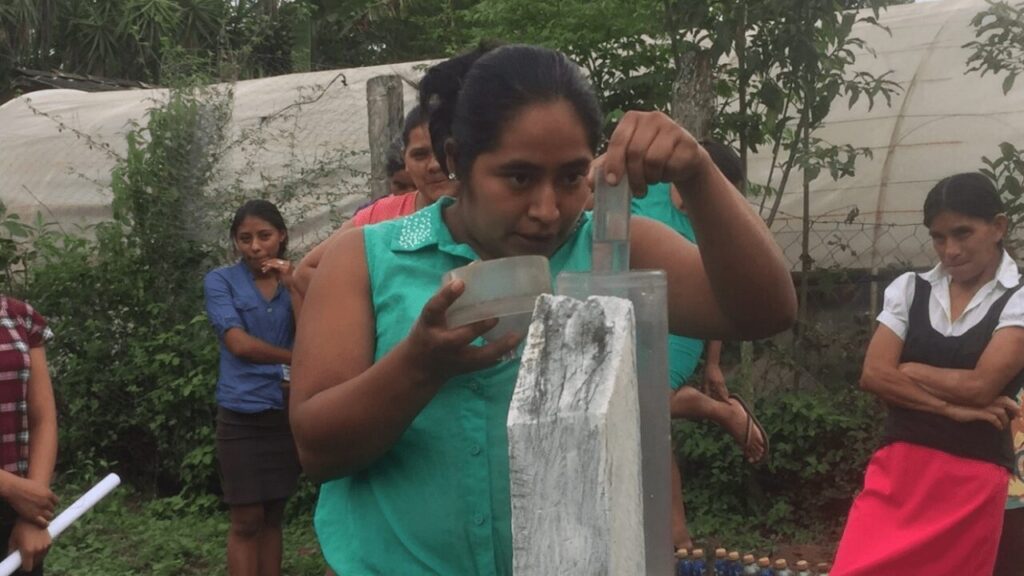- Reports and Knowledge Products
Tags: Biodiversity Conservation, Climate Change Mitigation, Climate Resilience, Community Involvement, Ecosystem-based Adaptation, Nature-based Solutions, Policy Integration, Sustainable Development
This project was implemented in the Santa Rita and Olopa communities of Honduras and Guatemala, respectively, within the Central American Dry Corridor, one of the regions most vulnerable to climate change. Building on evidence evidence gathered from Climate Smart Villages (CSV) and Climate-Smart Agriculture (CSA), this project sought to generate robust scientific evidence on the effectiveness of ecosystem-based adaptation (EbA).
The main objective of the project was to strengthen the resilience of rural communities by integrating CSA and EbA approaches, promoting sustainable solutions to address climate variability and risks. Funded by the Global EbA Fund and implemented in partnership with local organizations (ASORECH in Guatemala and CASM in Honduras), the initiative aimed to reduce vulnerability and improve the ecosystem services of agricultural production systems using agroclimatic information. Additionally, the project informed the formulation of public policies to strengthen the cross-sectoral implementation of EbA approaches. By combining participatory methodologies and effective dialogue between science and local knowledge, bridging the gap between policy-informing scales, and contributing to knowledge exchange through collaborative research, this project showcased the benefits of EbA in agricultural settings.
Policy recommendations derived from the project emphasised the need to:
In conclusion, the project demonstrated that CSV are effective models to enhance climate resilience and agri-food system sustainability in rural communities across Central America, with strong potential for replication and scaling in other vulnerable territories.
1. Strengthening Local Capacities to Access and Apply Agroclimatic Information for Improved Decision-making: More than 80 training sessions were held for farmers, and over 100 professionals from 30 organizations were trained, including 27 graduates from a specialized diploma on innovative agricultural extension.
2. Increased Participation of Women in Community Decision-making Processes to Promote Gender Equity: Female involvement was exceptionally high — 75% of participants in Santa Rita (Honduras) and 87% in Olopa (Guatemala).
3. Improved Agricultural Productivity and Resilience: The project resulted in yield increases in coffee, maize and beans, improved soil and water conservation, and greater agroecological diversification. In Honduras, the SEF 70 bean variety achieved yields of 2,742 kg/ha, approximately 340% higher than the national average.
4. Reduction of CO₂ Emissions in Production Systems: Implementation of EbA/CSA practices reduced CO₂ emissions by up to 76% in maize (Honduras) and 38% in coffee systems (Guatemala).
5. Enhanced Food Security: Increased food security and crop diversification led to higher levels of self-sufficiency. In Santa Rita, 75% of farming households reported improved food self-sufficiency due to on-farm production and adoption of practices such as agroforestry and water harvesting.
6. Improved Social Cohesion: Strengthened human, social, and natural capital contributed to reduced vulnerability and greater community resilience.
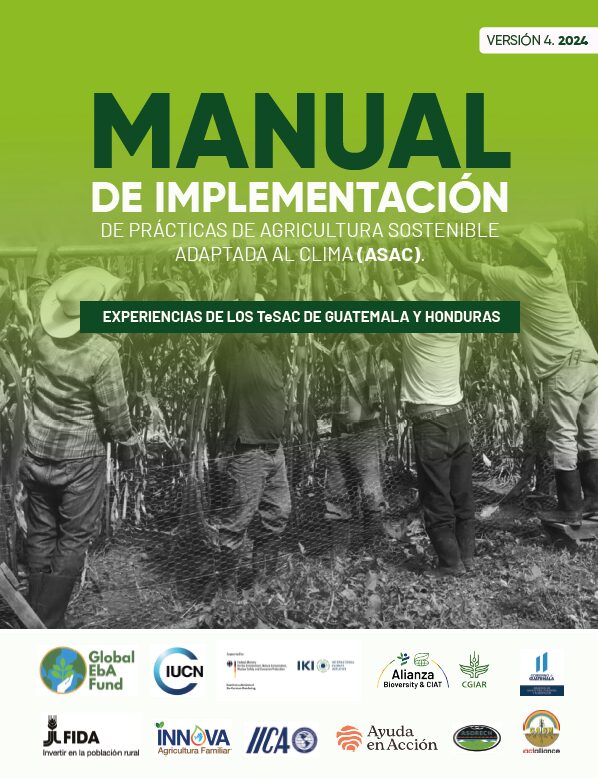
Monitoring of EbA and CSA practices in the Climate-Smart Sustainable Territory of Olopa, Guatemala 2024 (SP)
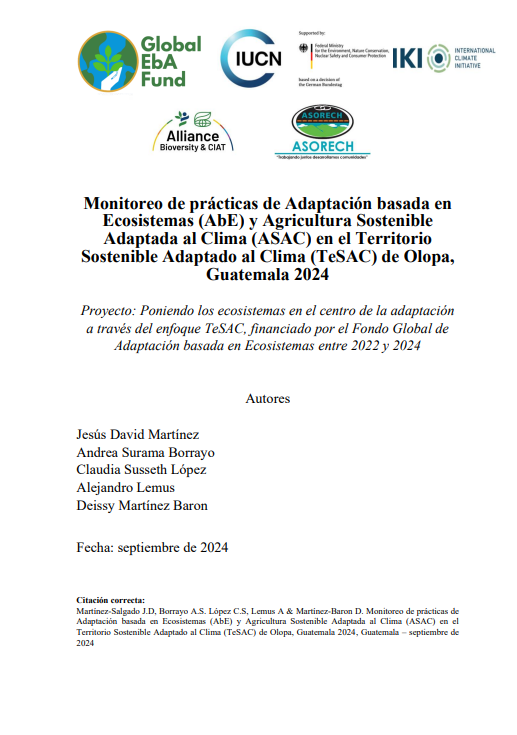
Proceedings of the workshop to share the results of the project - Guatemala and Honduras (SP)
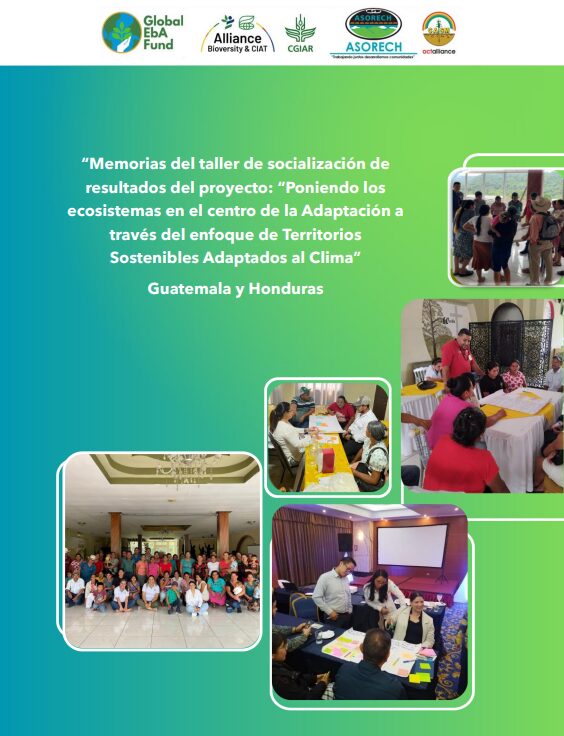
Monitoring of EbA and CSA practices in the Climate-Smart Sustainable Territory of Santa Rita, Honduras 2024 (SP)
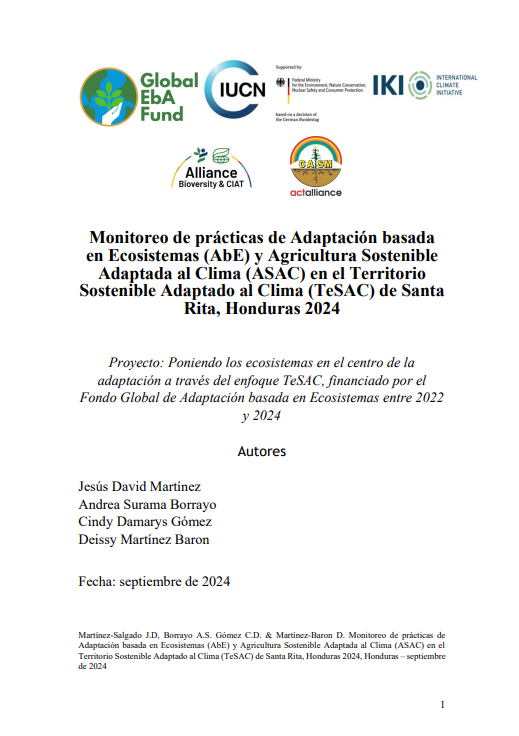


The CSV of Olopa as a local innovation platform for scaling EbA in Guatemala
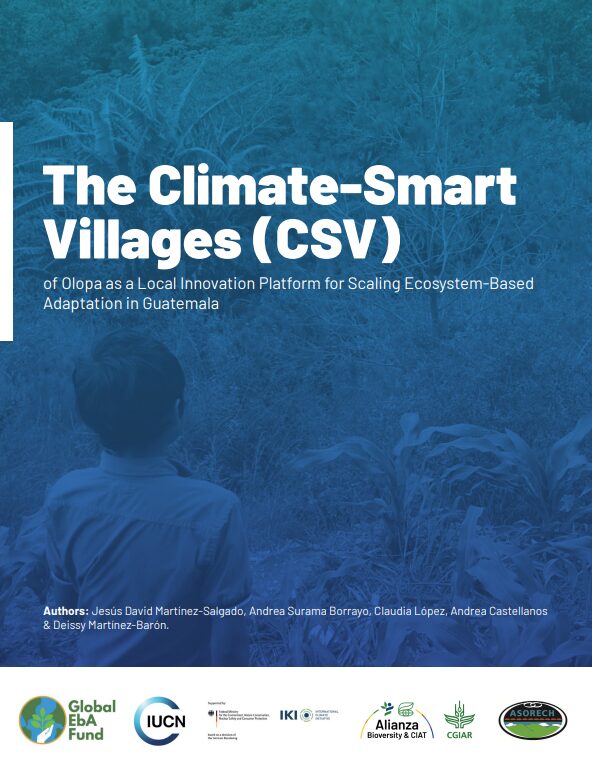
The CSV of Santa Rita as a local innovation platform for scaling EbA in Honduras
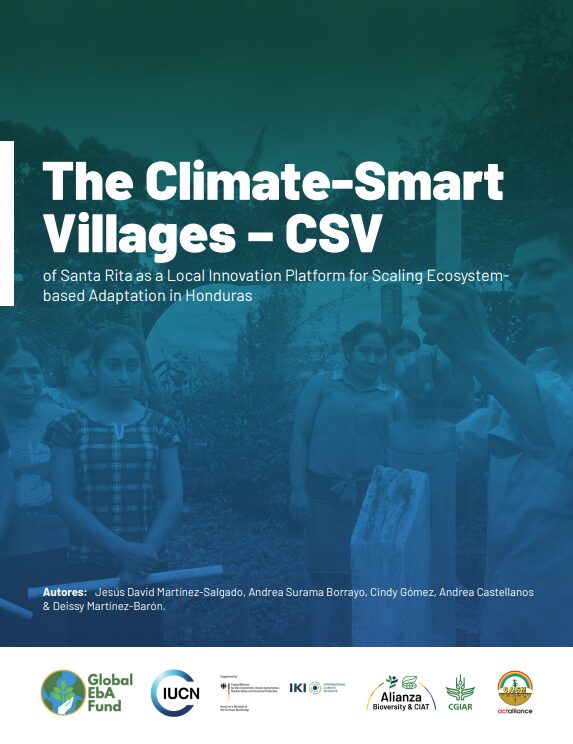
Results of participatory scientific trials on beans, established in the Climate-Adapted Sustainable Territory in Olopa, Chiquimula, Guatemala (SP)
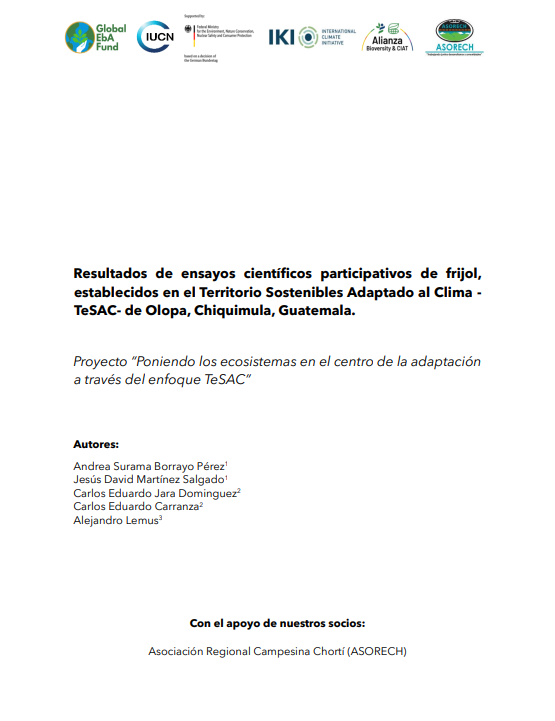
Technical report on the impact of implementing EbA/CSA practices established in the Climate-Smart Sustainable Territory of Olopa, Chiquimula (SP)
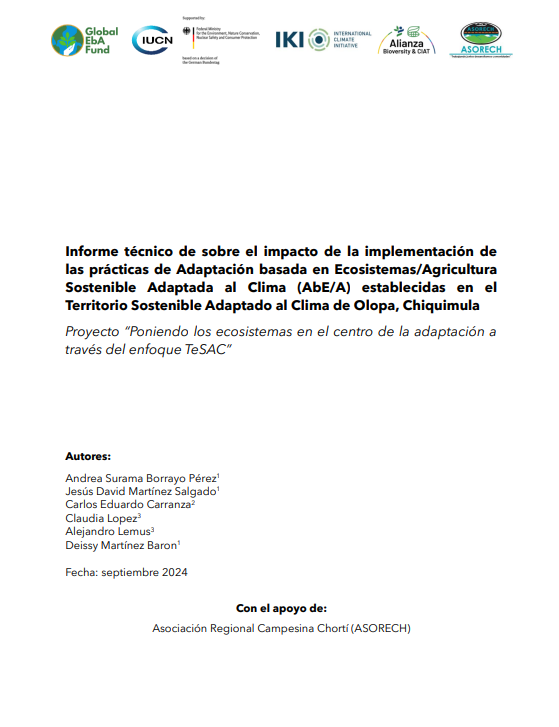
Technical d Adreport on the impact of implementing EbA/CSA practices established in the Climate-Smart Sustainable Territory of Santa Rita de Copán, Honduras (SP)
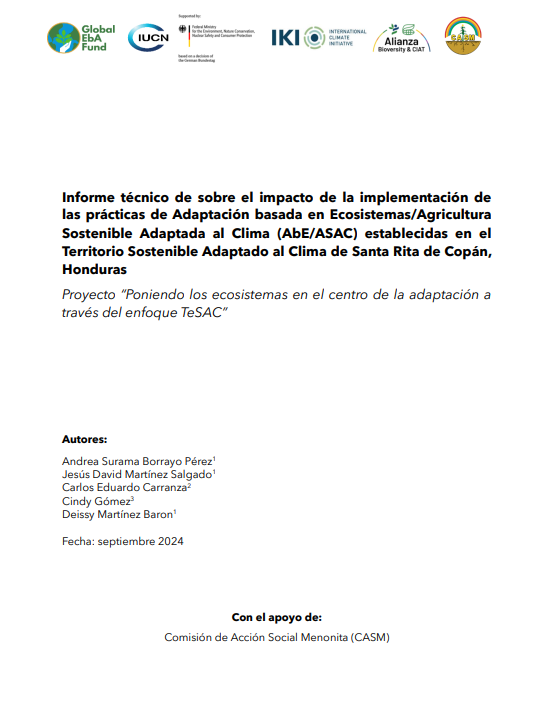
Results of participatory scientific trials on beans, established in the Climate-Adapted Sustainable Territory of Santa Rita, Copán, Honduras (SP)
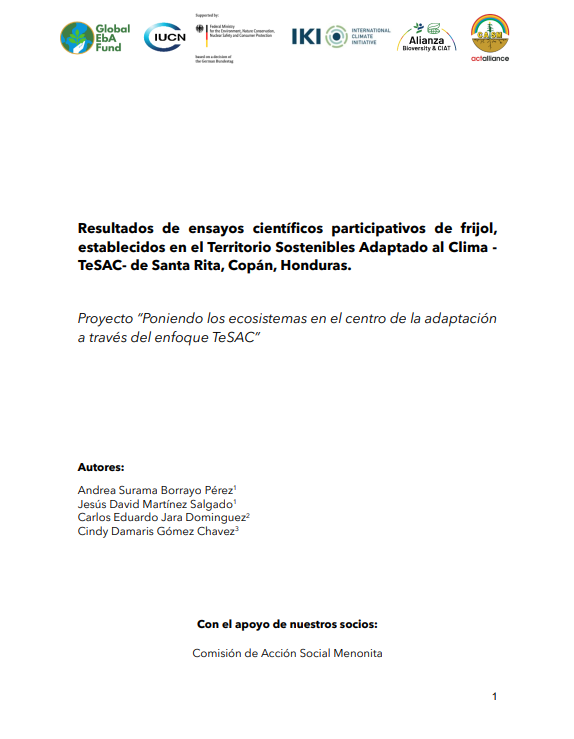
Guatemala: Putting Ecosystems at the Center of Adaptation through the CSV (SP)
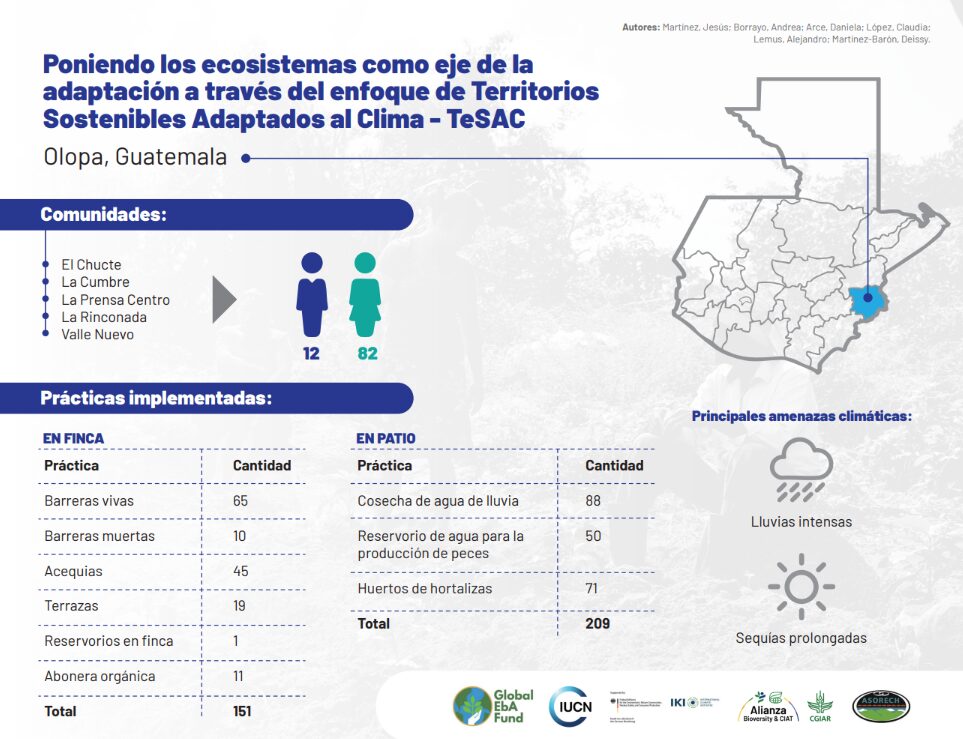
Honduras: Putting Ecosystems at the Center of Adaptation through the CSV (SP)
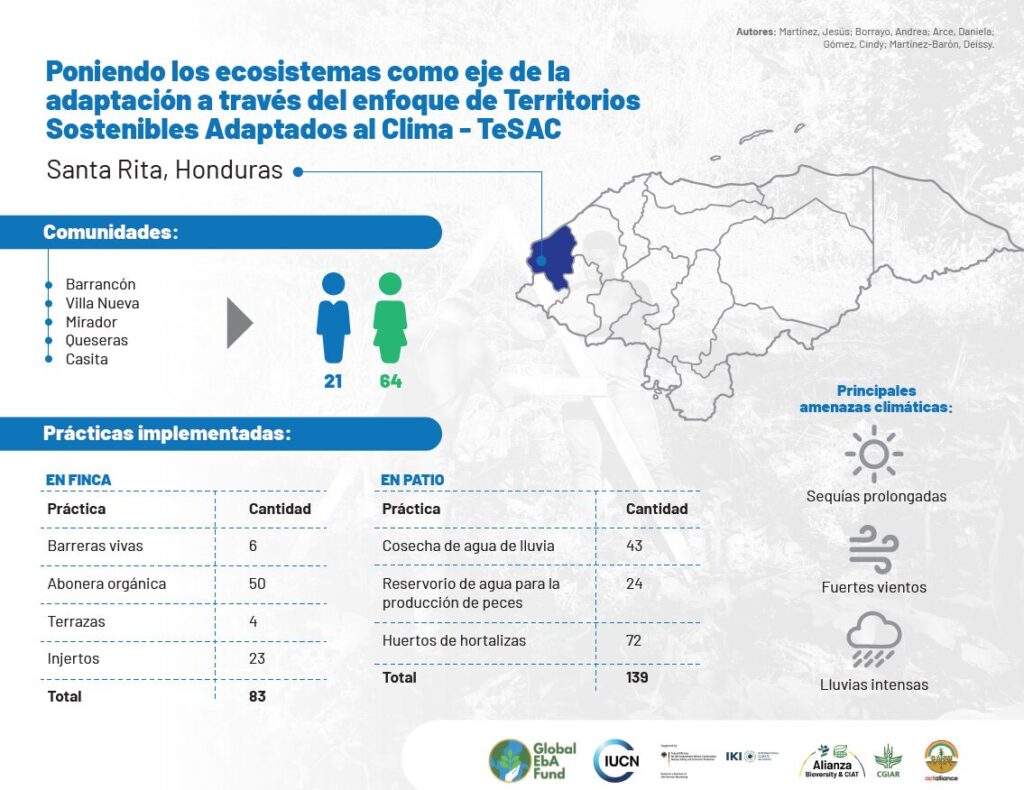
Guatemala: Putting Ecosystems at the Center of Adaptation through the CSV
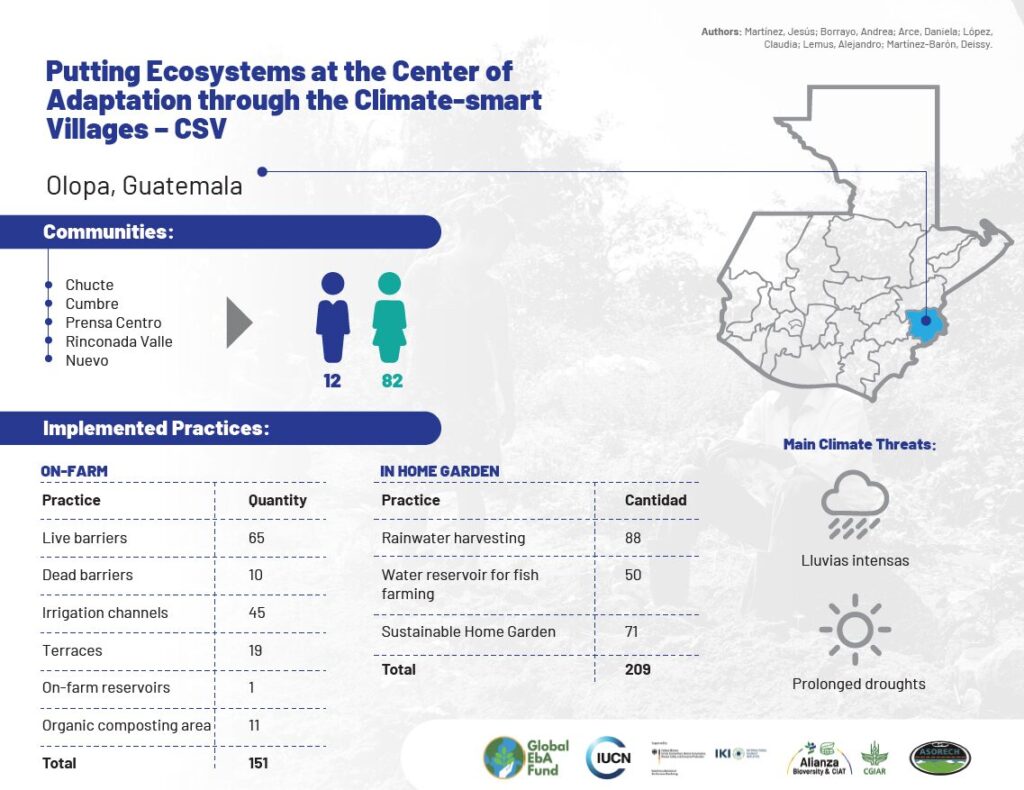
Honduras: Putting Ecosystems at the Center of Adaptation through the CSV
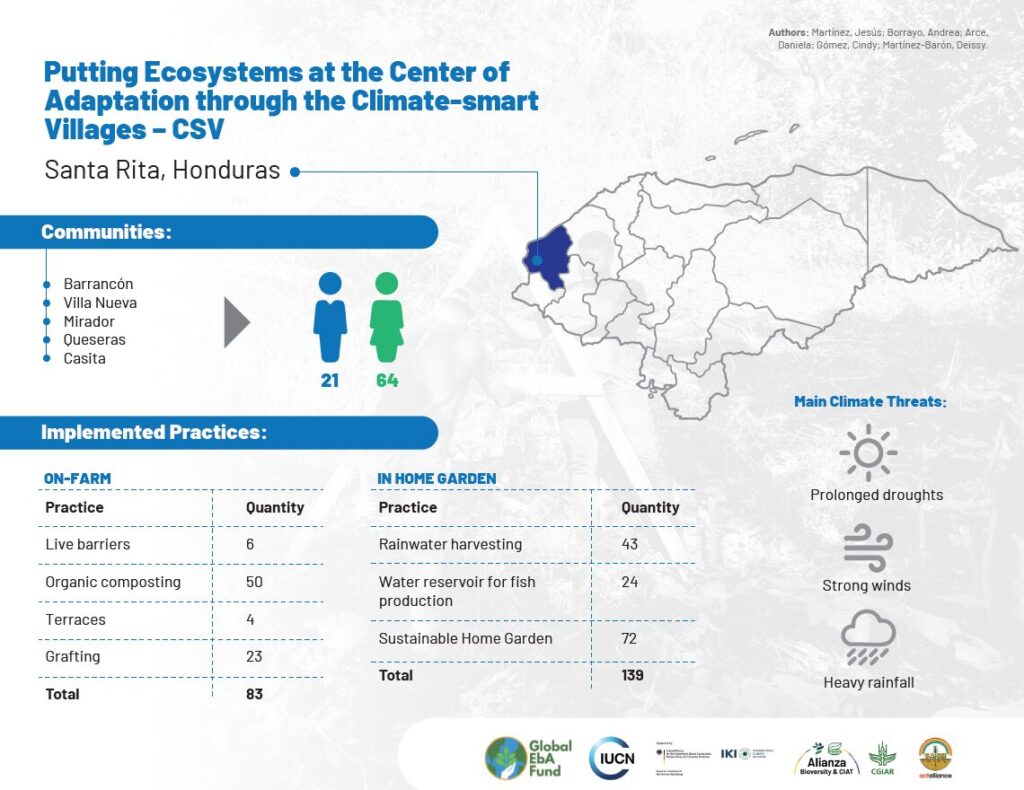
CSV in Guatemala and Honduras as Local Innovation Platforms for Scaling EbA
